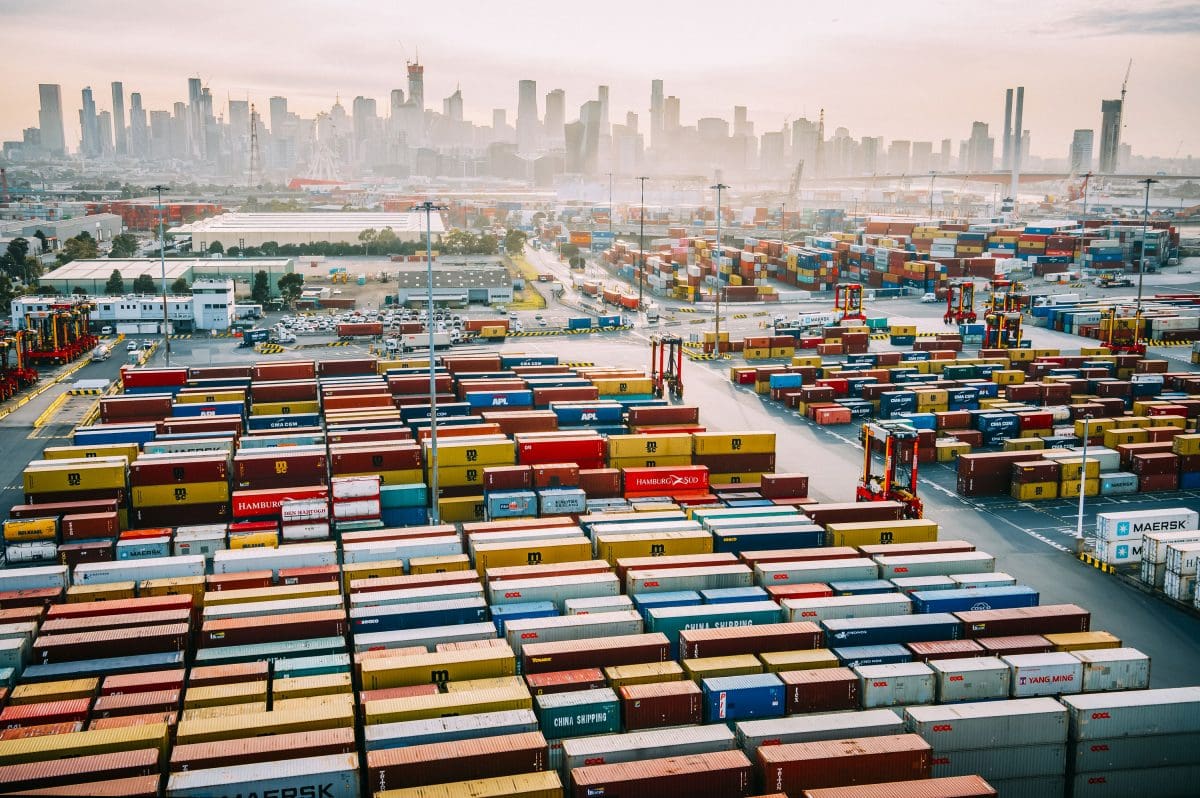
Patrick’s Melbourne terminal looks set to be hardest hit by the MUA’s planned industrial action. Photo: Patrick
STOPPAGES and work bans scheduled to take place at Patrick container terminals during October are expected to add further costs in time and money to Australian agricultural exporters.
The action is being taken by the Maritime Union of Australia (MUA) as it continues to call for a pay increase and certain conditions in its workplace agreement with Patrick.
It is expected to be felt most at Patrick’s Melbourne terminal, where operations are due to cease for 12 hours every Monday, Wednesday and Friday in October.
Patrick is Australia’s largest stevedore, and operates terminals in Brisbane, Fremantle, Melbourne and Sydney.
It has been in negotiations with the MUA since early last year, when the previous agreement lapsed.
Watch on shelf-life
All four Patrick terminals are major export points for grain, meat and pulses, and the eastern Australian terminals ship cotton also.
Sure Good Foods Australia is an exporter of Australian and New Zealand meat from numerous ports, and its president Stewart Hanna said the stoppages will make a bad situation worse.
While the MUA and Patrick are adept at blaming each other for failure to reach agreement, Mr Hanna said exporters are the ones who have to deal with the fallout on top of a troubled global logistics situation.
It involves reduced services being offered by shipping lines, escalating shipping costs, transshipment bottlenecks, and a shortage of empty containers to pack.
“For a union and an operator to be tying this on now is really unfortunate,” Mr Hanna said.
“The fact it’s still going on is the biggest disgrace of it all.
“The world of logistics is just horrible at the moment.
“It all adds to the cost of business.”
Mr Hanna said diminished efficiency portside in Australia was likely to have the biggest impact on longer shipping routes, such as those to North America, where even more delays could occur if ships had to wait to get into congested receiving terminals.
“For chilled, it’s a huge issue.”
“On a chilled program, that can add another three or four weeks’ age to the product, which may or may not suit the customer.”
Added cost
The MUA since last year has been taking industrial action, including stoppages and overtime bans, with its terminal at Sydney’s Port Botany arguably the hardest hit.
It has been impacted further by Patrick automating its AutoStrad terminal.
Between the reduced access area and MUA action, trains have found it difficult to go straight into Patrick, Port Botany’s biggest container terminal by far.
Sources have told Grain Central the MUA’s October stoppages will add around $12 per tonne to the cost of handling containerised grain arriving by rail from up-country because it will not be able to avoid double-handling.
“There are additional costs to take the load of boxes through one of the intermodal terminals at Botany,” one source said.
“If they become saturated, we might see full containers returned to the bush.”
“We’ve seen that before.”
Minimising the impact of October stoppages in Melbourne are the existing difficulties in getting empty containers to pack with pulses, and congestion in transhipment ports for boxes bound for the Indian sub-continent, their major market.
Combined, these have reduced the boxed trade out of Melbourne and Sydney for pulses to abnormally low levels.
Also, new-crop exports of containerised cereals and pulses out of Victoria will not start until well into December, and much of the cotton picked this year in southern NSW has already been shipped.
Posturing from parties
In a statement, MUA assistant national secretary Jamie Newlyn said Patrick employees were “rightly frustrated” at corporate tactics to deny a modest pay rise and remove agreed conditions on secure jobs.
“Despite claiming a loss of market share, Patrick are recording record profits by price gouging through Terminal Access Charges and other shipping fees which are adding to the cost of goods for customers and Australian consumers.”
“Had the CEO not intervened in the Port Botany bargaining, agreement would have been reached locally.”
“Productivity is at a high and Protected Industrial Action is a last resort to finalise an agreement that is almost 18 months past expiry.”
Patrick CEO Michael Jovicic said the MUA was “clearly embarking” on a major pre-Christmas industrial campaign.
He said MUA on Friday hit Patrick with 40 notices of industrial action in Melbourne in addition to industrial action and stoppages at its other terminals.
“This means there will be continuous rolling industrial action in Patrick Terminal’s Melbourne container terminal with strikes every Monday, Wednesday and Friday of October and impacts across all other days of the month.”
Action in Melbourne includes overtime and non-rostered work bans for most of October.
At Fremantle, action entails a ban on non-rostered work until October 19.
Planned action appears to be minimal for Brisbane as Australia’s biggest beef export port by far and a significant shipper for cotton and chickpeas.
Grain Central understands cotton merchants had already pushed as much northern New South Wales as well as Queensland cotton as possible towards Brisbane to avoid Sydney.
In Sydney, the action involves overtime bans from October 1-5, and a 48-hour work stoppage from 10pm October 2.



HAVE YOUR SAY